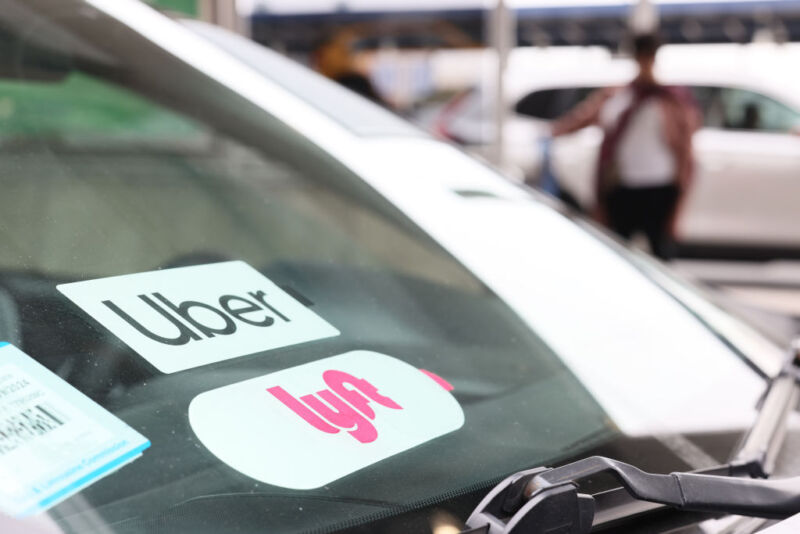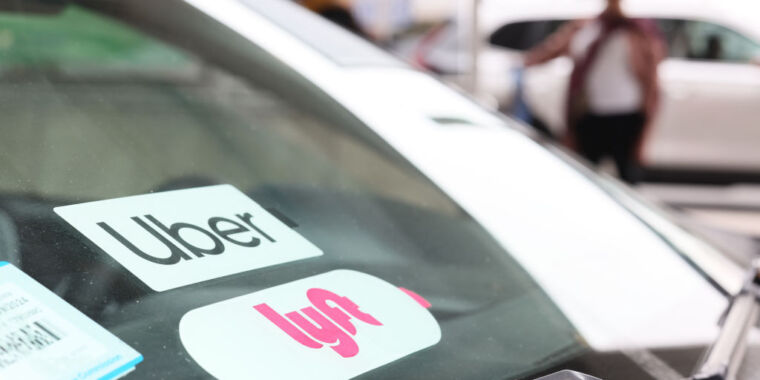
Days after Uber and Lyft drivers in Minnesota celebrated the passage of ride-sharing legislation that would have increased their wages and protections, the state’s governor, Tim Walz, vetoed the bill. Now the drivers of Minnesota are outraged, to claim that the governor bowed to “scare tactics”. She sworn to continue fighting alleged abuses to create better working conditions in the state.
Walz’s veto is his first in five sessions as Minnesota governor and came hours after Uber threatened to pull out of nearly all Minnesota markets and only offer premium products in areas where the services were still available, The Star Tribune reported. Lyft had also threatened to create “transportation deserts” if the bill became law.
Uber & Lyft used their usual scare tactics from their playbook, but we won’t let billion-dollar companies override the democratic process or the needs of our communities.
We know @TheMulda is on the right side and will win.
— GigWorkersRise (@GigWorkersRise) May 25, 2023
Written by Minnesota Senator Omar Fateh, the ridesharing legislation would have gone into effect July 1, 2024, forcing Uber and Lyft to pay drivers $1.45 per mile and 34 cents per minute in the state’s busiest counties. Outside of that area, drivers would have received a minimum compensation of $1.25 per mile and 34 cents per minute. It also guaranteed a $5 minimum fee for each transport offered.
Uber and Lyft had argued that increasing driver pay would have caused rider prices to increase by at least 50 percent, the Star Tribune reported. In a press release, Walz said he was protecting riders by vetoing the bill and signing an executive order “convening a working group of drivers, riders, rideshare companies, members of the disability community and workers to make recommendations for rideshare legislation” by January 1, 2024.
“Rideshare drivers earn fair wages and safe working conditions,” said Walz. “I am determined to find solutions that balance the interests of all parties, including drivers and passengers. This is not the right bill to achieve these goals. I have spent my career fighting for workers and I will continue to work together with drivers, riders and rideshare companies to address the concerns this bill sought to address.
The Minnesota Uber/Lyft Drivers Association (MULDA) tweeted that Walz was not protecting riders, but was instead “in the pocket of corporate America”. Fateh tweeted that Walz had “not one conversation” with drivers before vetoing the bill.
“While Uber and Lyft had access to the administration and elected officials, I want to make it clear that the administration has not once contacted the drivers,” Fateh tweeted. He promised that he “will not back down” and would make passing new ride-sharing legislation a “top priority” at the state’s next legislative session.
Uber sought “compromise”
An Uber spokesperson told Ars that it was always Uber’s goal during this session to pass comprehensive legislation that would increase fares for drivers while giving them the flexibility and benefits they tell us they want, but said that a “compromise” in February was necessary because Fateh’s bill failed to achieve that goal.
Lyft issued a statement saying they “appreciated” Walz for “listening to many in the community, vetoing the bill and instead creating a task force to properly study these important issues.”
“Legislators must provide fair pay and other protections, but it must be done in a way that does not compromise the affordability and safety of those who rely on the service,” Lyft’s statement said. “We recently did this in Washington State, where drivers, union leaders, elected officials and the corporations came together to pass smart legislation that benefited all involved. We look forward to continuing our involvement and leading a similar path forward to be found here in Minnesota.”
According to Lyft, Walz was moved by letters from local groups requesting a “pause” from ridesharing laws until more was known about the potential impact on people with disabilities who rely on affordable ridesharing for work and entertainment. Other activities.
Gig Workers Rising, a community of app workers committed to better working conditions, tweeted that the governor’s decision to veto the law overlooked other at-risk communities and “is a huge loss to communities of color”.
The ridesharing laws also mandated greater transparency from Lyft and Uber and “would have protected Uber and Lyft drivers, who are primarily immigrants, refugees, and people of color — who have higher rates of deactivation, verbal abuse, and physical assault,” Gig tweeted Workers Rising.
It’s incredibly disappointing that @GovTimWalz decided to side with billion-dollar companies and vetoed HB HF 2369/SF 2319, which would have protected Uber and Lyft drivers.
Shame on you governor!@TheMuldawe stand in solidarity as you continue your struggle.
— GigWorkersRise (@GigWorkersRise) May 25, 2023
Fateh, Walz, Gig Workers Rising and MULDA did not immediately respond to Ars’ request for comment. [Update: MULDA president Eid Ali told Ars that it’s possible that if Walz’s working group delivers recommendations within the next two months that new legislation could be passed before the end of the year to better support drivers. Ali said that it was too hard to say now if those recommendations would ultimately meet the drivers’ desired pay standards, noting that the drivers had already compromised by agreeing to the modest increased pay rate that Walz vetoed this week. Currently, in addition to providing input for Walz’s working group, Ali said that MULDA is working with the city of Minneapolis to “see what we can accomplish on the city level.”]
Walz’s task force has been directed to launch an investigation “to obtain and analyze data related to the working conditions of rideshare drivers in Minnesota and how potential changes may affect rider access and costs,” according to the governor’s press release. A written report must be submitted by January 1, 2024.
MULDA tweeted that Walz acted as an “agent” for Uber and Lyft, to spend taxpayer money studying the minimum wage just because the ridesharing companies told him to, and warning that without laws drivers will continue to be exploited and abused.

